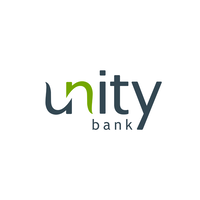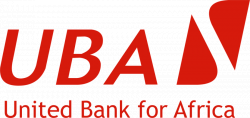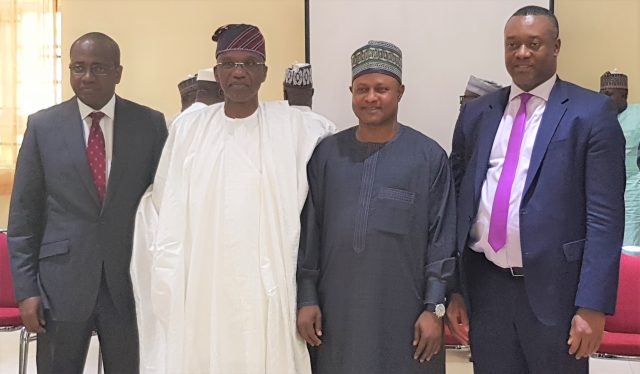These are indeed trying times for deposit money banks operating in Nigeria, more of which are in breach of the 65% Loan-Deposit Ratio set by the country’s central bank as part of encouraging lending, in a bid to drive growth and development of an economy that slipped into recession, expectedly at the end of June.
In what may seem that the banks would rather lose 50% of the deposits they did not grant as loans to meet the threshold, only three of the 13 banks with shares are publicly traded on the Nigerian Stock Exchange (NSE), achieved the benchmark, according to financial statements filed by the banks for the period ended September 30, 2020.
While total deposits of the banks stood at N40.663tr, according to Research by Investdata from filings of the banks at the Nigerian Stock Exchange (NSE), their cumulative loan books stood at N22.674tr, representing an average of 55.76% LDR.



The three banks that complied with the regulatory directive are Fidelity Bank which created N1.455tr in total loans, representing 97.16% of its N1.498tr; followed by Zenith Bank’s 67.41%, with N3.455tr of its N5.224t total deposits as loans. Sterling Bank recorded 65.44% or N639.166bn of its N976.746bn total deposits.
By How Much They Missed Target
To achieve the minimum level, the 10 defaulting banks must grant loans amounting to N4.368tr, while the affected banks would lose N2.184tr should the CBN go-ahead to impose a fine of 50% of the shortfall as a deterrent.



In percentage terms, Unity Bank was the most delinquent at 40.69% LDR; followed by United Bank for Africa’s 43.74%; Stanbic IBTC Holdings, 47.23%; Guaranty Trust Bank 47.51%; FBN Holdings, 49.95%; Wema Bank, 51.26%; and Ecobank Transnational Incorporated, 54.89%; among others.
In absolute terms however, United Bank for Africa needs to grow its loan book the most with N1.191tr outstanding, meaning that it risks default fine of N595.633bn; ahead of FBN Holdings’ N864.868bn and N432.434bn in fines. ETI needs to create N757.946bn loans or loss N378.973bn; while GTBank needs to grant N577.749bn in new loans to meet the threshold.

Recall that the CBN had in July 2019 directed commercial banks to maintain a 60% minimum LDR from September 30, 2019, raising it further to 65% at the end of September, with a fresh deadline of December 31, 2019, in a bid to encourage increased lending by Nigerian banks, with sanctions on defaulters.
In a January 7, 2020, letter to all banks, signed by its Director of Banking Supervision, Ahmad Abdullahi, the apex bank warned that failure to achieve the target would continue to attract levies of additional cash reserve requirement of 50% of the shortfall of the target LDR.
The CBN said it “has decided to retain the minimum 65% LDR in the interim. All DMBs are required to maintain this level and are further advised that average daily figures are to be applied to assess compliance going forward.
“Failure to meet the above minimum LDR by the specified date shall result in a levy of additional cash reserve requirement (CRR) equal to 50% of the lending shortfall of the target LDR,” it stressed.
However, one and perhaps, the most significant drawback to banks granting credit in Nigeria remains the growing unwillingness on the part of creditors to repay, resulting in a mountain of bad loans. That, it would be recalled, led to the creation of the Asset Management Corporation of Nigeria (AMCON) in 2010.

While many have since come up with repayment plans and cleared their obligations, the corporation has repeatedly cried out about the unhealthy activities of recalcitrant debtors, including highly placed public servants and friends of those in government who have displayed an unwillingness to repay. These debt, the corporation fears, may become a burden to tax payers at the eventual sunset of AMCON.
Such recalcitrant debtors and the unfriendly business environment have over the years been blamed for the unwillingness of banks in the country to approve loans, creating multiple layers of approval processes and limits, in addition to the CBN’s single obligor limit for banks.
Such is the tight approval conditions that banks in the country almost always seek to read the minds of loan seekers before any approval, and where requests are granted, collaterals of higher values than the loan are demanded from prospective obligors.
According to the Selected Banking Sector Data for the 2020Q3 published by the National Bureau of Statistics (NBS) on December 12, 2020, for example, Nigerian banks made N1.442tr in specific provisions for bad and doubtful credits as against the previous N1.399tr. Non-performing loans amounted to N1.169tr, rising from N1.108tr, in what may be a sign of the difficult operating environment in the country arising from the lockdown that followed the outbreak and spread of the Coronavirus pandemic. The NPL numbers would have been more significant, but for the fact that the banks, supported by the CBN resorted to rescheduling the repayment of the loan principal and interest. Gross loans for the period stood at N19.46tr, up by 17.09% from N16.62tr in the preceding third quarter.
Notwithstanding the rescheduling, non-performing loans between December-end 2019, grew from N1.059tr to N1.169tr at the end of the 2020Q3, rising by N110.014bn or 10.37%.
Also, according to the NBS data, impairment charges on loans which ballooned by N32.986bn or 131.74% from N25.038bn at the end of the 2020Q1 to N58.024bn by Q2, the peak of the confusion arising from the pandemic, showed a marginal drop to N57.048bn by Q3 ended September 30, 2020.
Encouraging Banks
There are those who have argued in the past that Nigerian banks should be encouraged to lend and protected in the case of default.

Perhaps aware of the difficulty in loan recovery being experienced daily by AMCON, the Committee on Banking Insurance and other Financial Institutions, of the Nigerian Senate on August 29, 2020, in Abuja, the nation’s capital, agreed on the need to establish loan/credit tribunals, to help the recovery efforts by AMCON before its impending sunset.
Chairman of the committee, Senator Uba Sani, while reacting to a presentation by Ahmed Kuru, AMCON’s chief executive, about how debtors (obligors) hide under legal technicalities to hamstring the corporation in courts, expressed strong belief “that the provision for a Loan/Credit Tribunal will assist AMCON in its loan recovery efforts.”
Beyond setting up such tribunal, akin to the Failed Bank Tribunals of the General Sanni Abacha military era, there is a need for a strong credit culture, beginning with banks strengthening their credit management frameworks and partnering more with credit bureaux in the country. Such sincere efforts could change the narrative for good.








